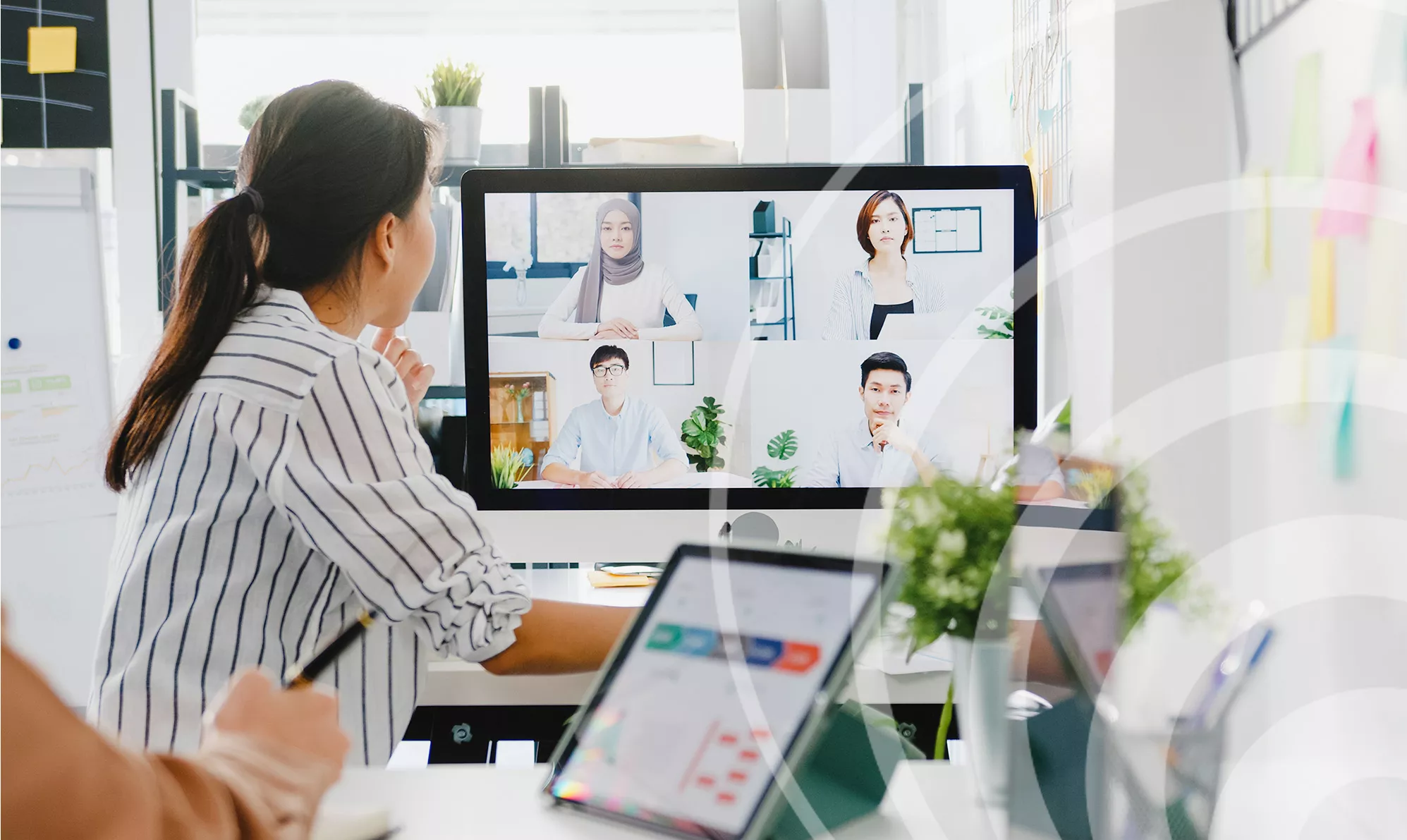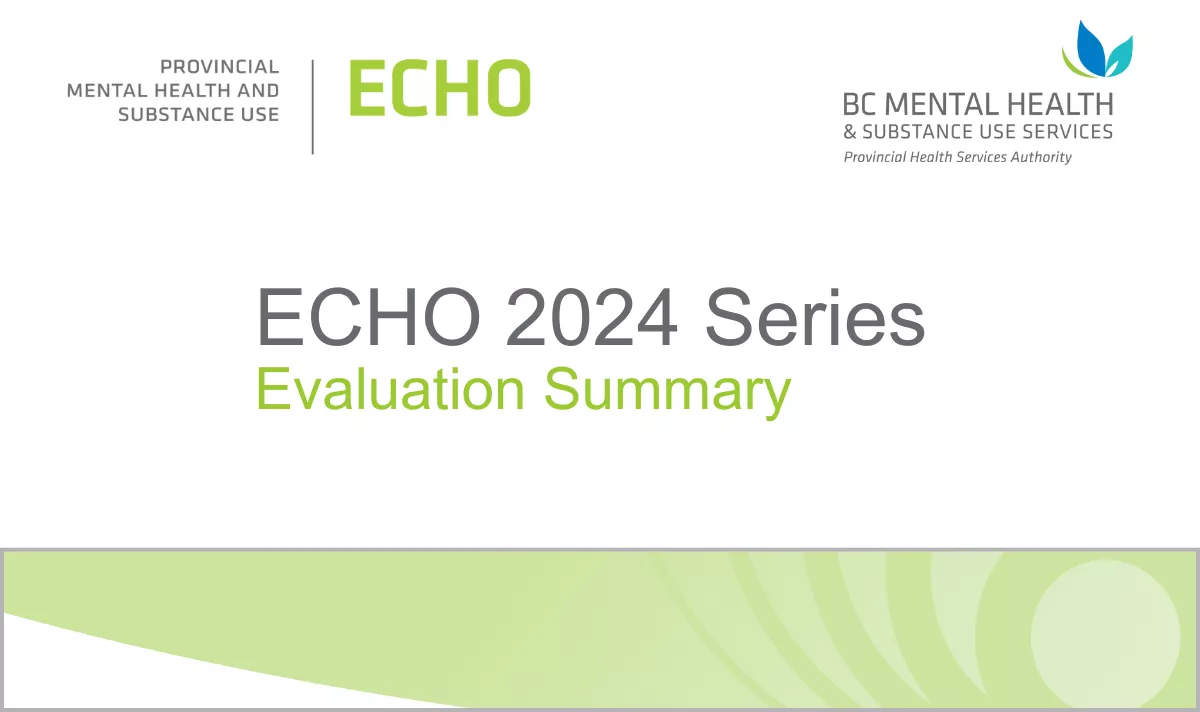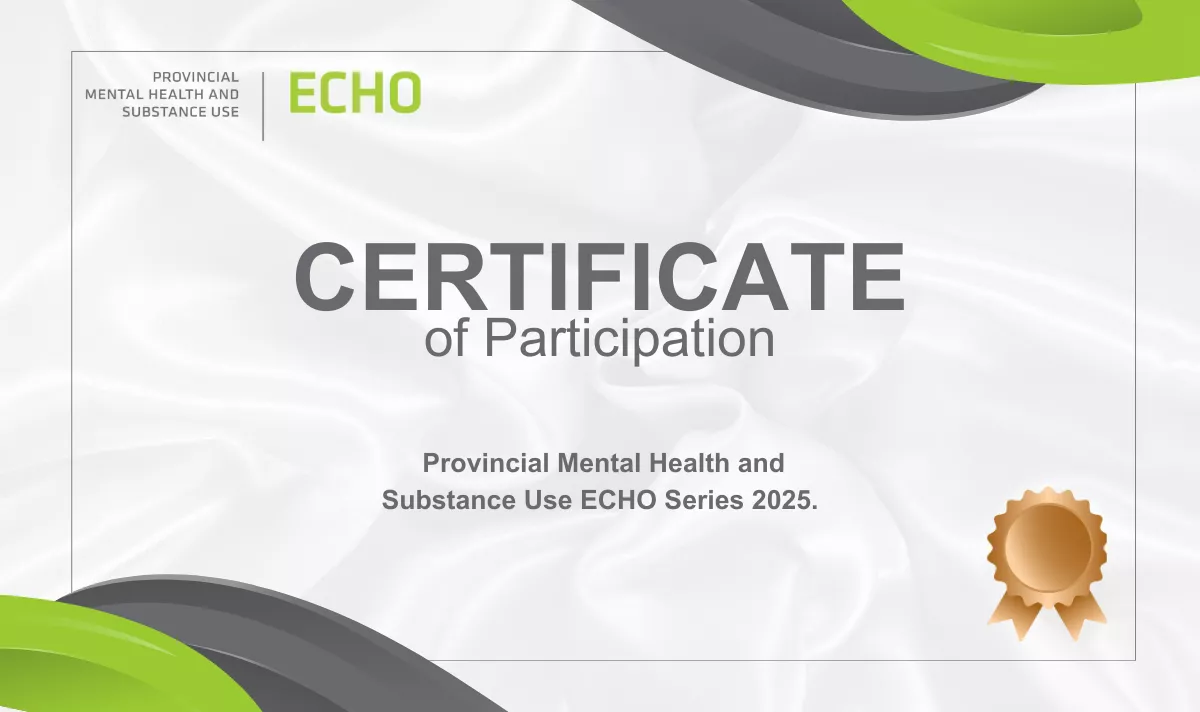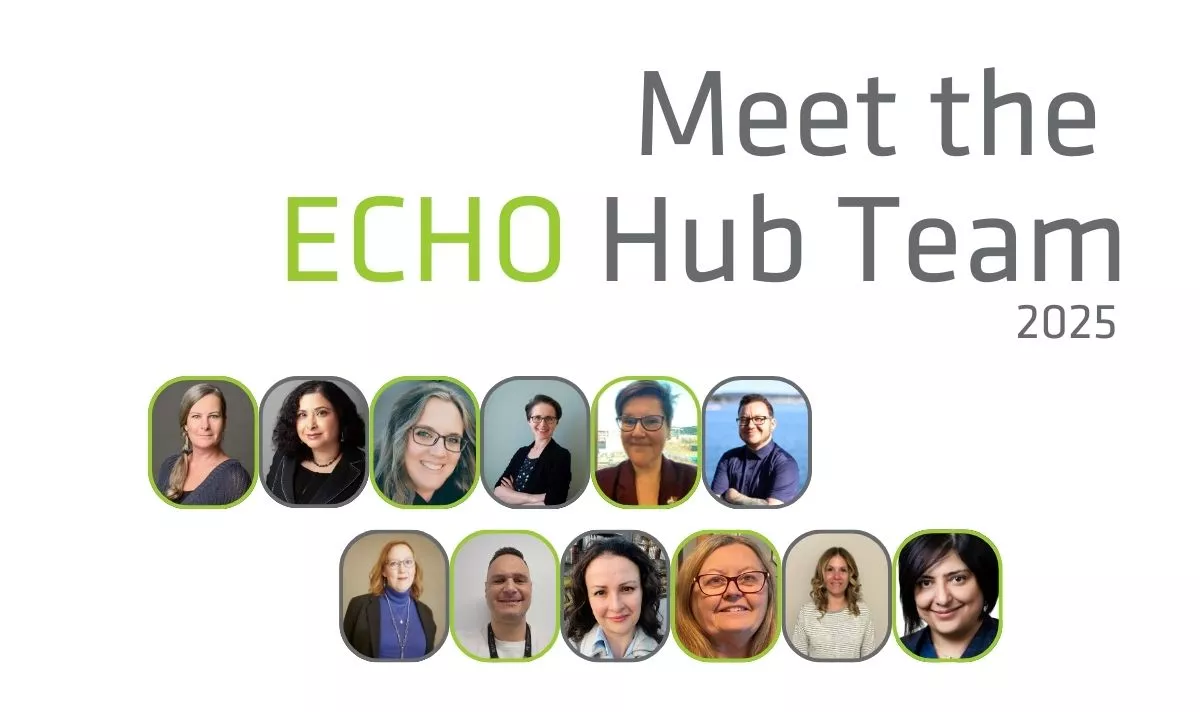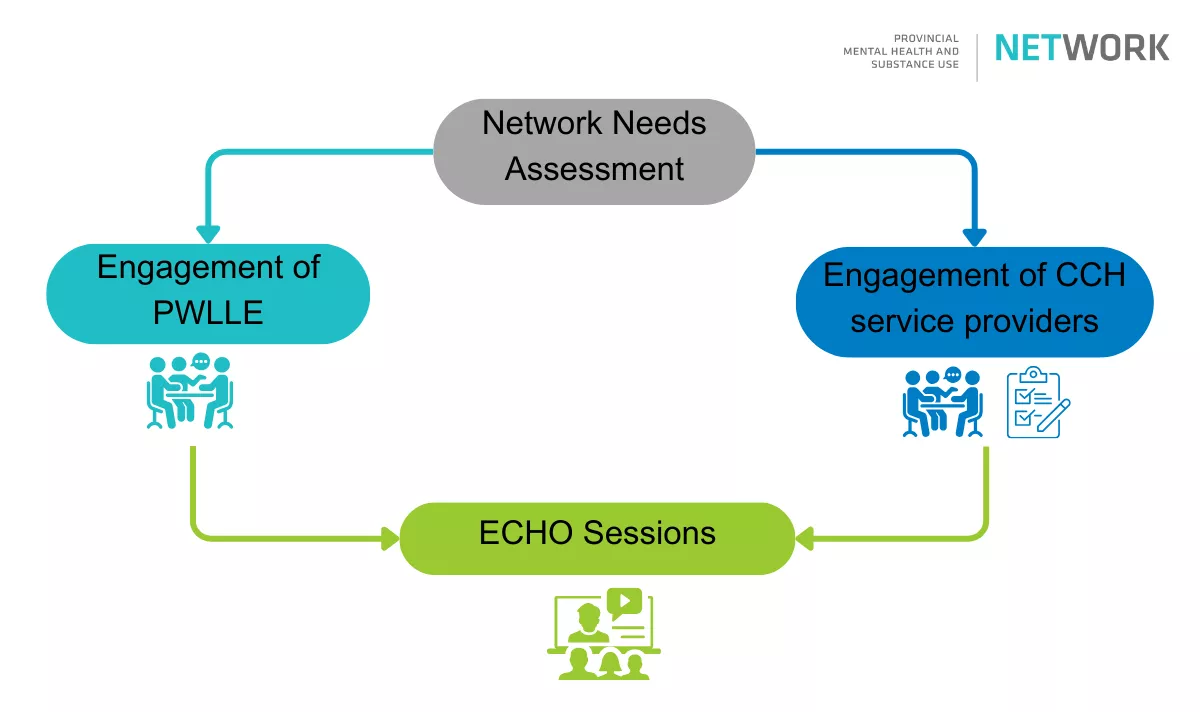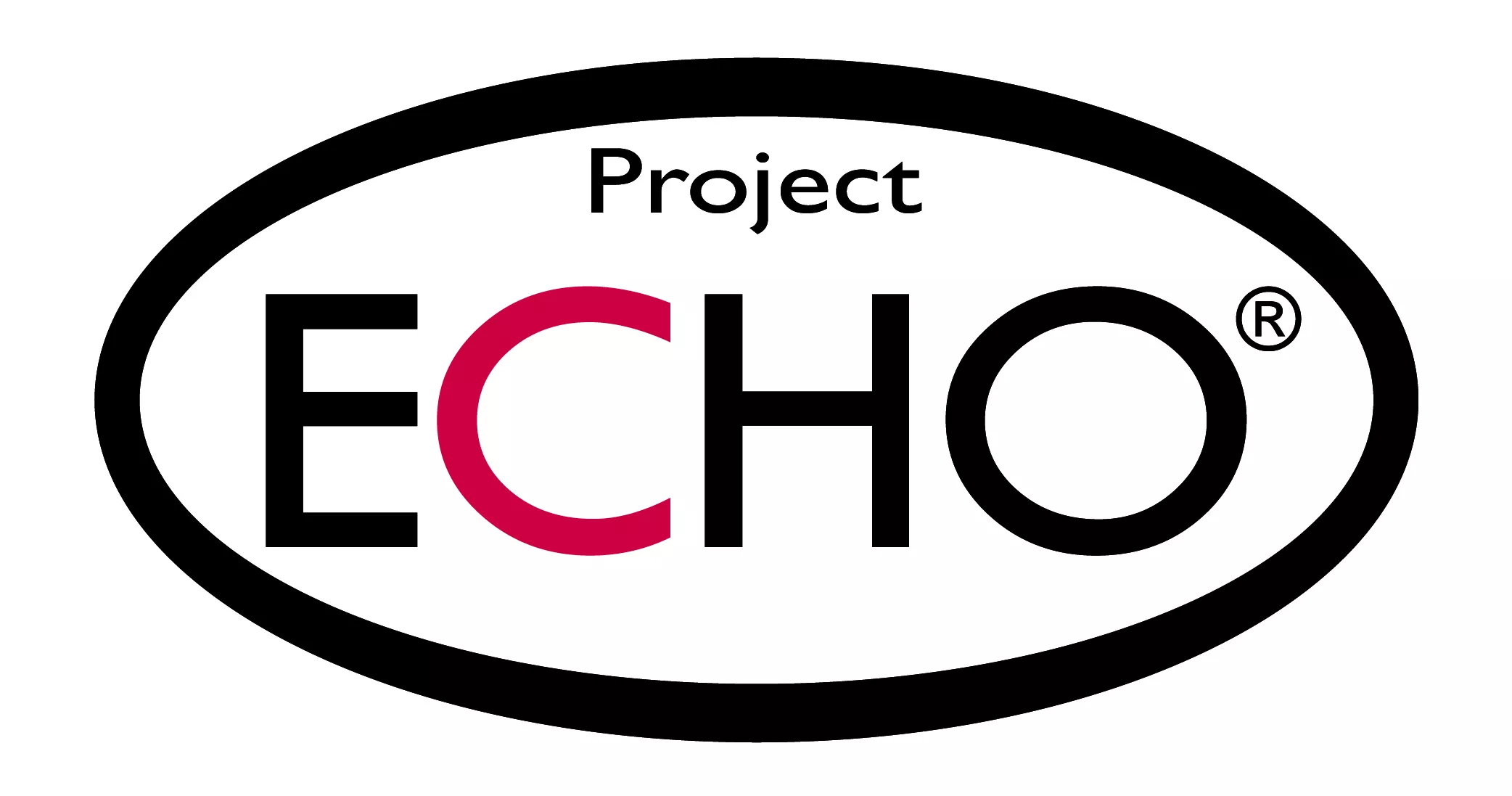Image

What you get from taking part
- Free online learning sessions that include a Flash Talk by a subject-matter expert, a case presentation by a participant and a collaborative discussion to develop care recommendations
- Access to a highly knowledgeable community of practice, where presenters, the Hub Team, and participants share insights from clinical and non-clinical backgrounds along the continuum of care
- Access multi-disciplinary support to enhance your work or practice
Register for the Provincial Mental Health & Substance Use ECHO

